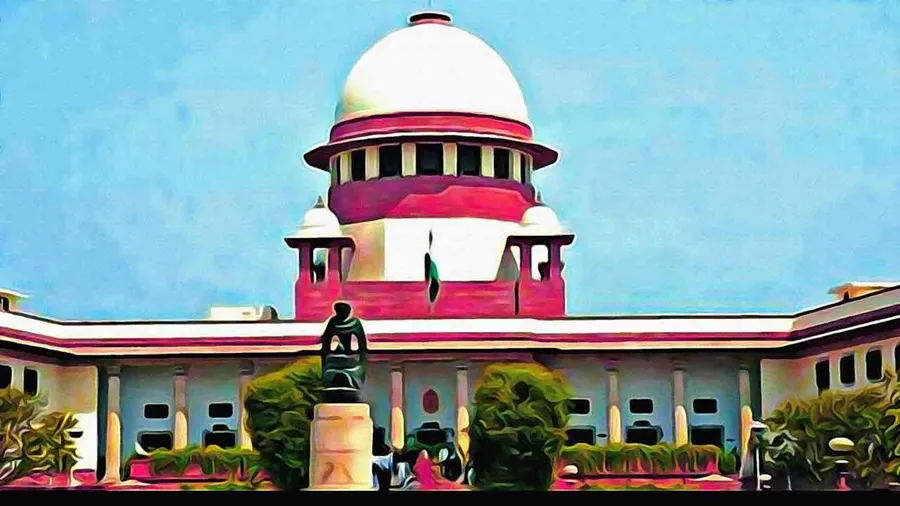Supreme Court Petition Aims to Dismantle Superstition’s Grip on Society
A petition filed in India’s Supreme Court seeks to address the pervasive issue of superstition and sorcery, calling for comprehensive action from both the central government and state authorities. The plea argues that these unscientific practices violate fundamental rights and necessitate a multi-faceted approach to eradicate them from society.
Advocate for Legal Reform: Criminalizing Superstition
The petitioner, advocate Ashwini Kumar Upadhyay, contends that a stringent anti-superstition and sorcery law is urgently needed to combat the irrational beliefs that plague society. The plea proposes the inclusion of a dedicated chapter in the Bharatiya Nyaya Sanhita (BNS) and the Bharatiya Nagarik Suraksha Sanhita (BNSS) to criminalize such practices. This legal framework would serve as a deterrent and provide recourse for victims of exploitation by unscrupulous individuals and organizations.
Education as a Weapon Against Ignorance
While recognizing the limitations of legislation alone, the petition also emphasizes the importance of education in eradicating superstition. It calls for the development of a scientific temper, humanism, and a spirit of inquiry among citizens, in line with Article 51A of the Constitution, which outlines fundamental duties. Information campaigns and community engagement are proposed as essential tools to dispel myths and promote rational thinking.
Safeguarding Fundamental Rights and Combating Exploitation
The petition argues that superstition and sorcery often lead to violations of fundamental rights, such as the right to equality, life, and freedom of religion. Vulnerable individuals, particularly women and children, are often targeted by those who exploit these beliefs for personal gain. By criminalizing such practices and promoting scientific awareness, the petition seeks to create a safer and more equitable society.
A Multi-Pronged Approach to Social Reform
The petitioner acknowledges that eradicating superstition requires a multi-pronged approach. While legal measures are essential, changing deeply ingrained beliefs requires a shift in societal attitudes and cultural norms. This can be achieved through a combination of education, awareness campaigns, and community engagement. The petition urges the government to constitute an expert committee to assess the feasibility of such a comprehensive approach.
Unmasking the Menace of Forced Conversions
The plea further alleges that some individuals and organizations leverage superstition and sorcery to facilitate mass conversions. This accusation adds another layer of complexity to the issue, highlighting the need for comprehensive legal and educational interventions to protect vulnerable individuals from exploitation and coercion.
Summary
The Supreme Court petition seeking to eradicate superstition and sorcery represents a significant step towards addressing a deeply rooted social issue in India. By advocating for both legal reforms and educational initiatives, the plea proposes a holistic approach to combat irrational beliefs and protect vulnerable individuals from exploitation. This case has the potential to spark a national conversation about the role of science, reason, and critical thinking in fostering a more enlightened and equitable society.
Key Learning Points
| Key Point | Analysis |
|---|---|
| Superstition and sorcery are pervasive social issues in India. | These practices are deeply ingrained in cultural and social norms, often leading to exploitation and violation of fundamental rights. |
| Legal reforms are necessary to combat superstition and sorcery. | The petition calls for the criminalization of these practices to deter perpetrators and provide recourse for victims. |
| Education plays a crucial role in eradicating superstition. | Fostering a scientific temper, humanism, and a spirit of inquiry through education is essential to dispel myths and promote rational thinking. |
| Superstition and sorcery can lead to human rights violations. | Vulnerable individuals, especially women and children, are often targeted and exploited due to superstitious beliefs. |
| A multi-pronged approach is needed to address the issue. | Eradicating superstition requires a combination of legal measures, educational initiatives, awareness campaigns, and community engagement. |
| The petition alleges the use of superstition for forced conversions. | This accusation adds another dimension to the issue, highlighting the need for comprehensive legal and social interventions to protect individuals from coercion and exploitation in the name of religion. |
| The case could trigger a national conversation on scientific temper. | The petition’s focus on fostering a scientific temper could spark a broader discussion about the role of reason, critical thinking, and evidence-based decision-making in addressing social challenges and promoting progress. |
Soumya Smruti Sahoo is a seasoned journalist with extensive experience in both international and Indian news writing. With a sharp analytical mind and a dedication to uncovering the truth, Soumya has built a reputation for delivering in-depth, well-researched articles that provide readers with a clear understanding of complex global and domestic issues. Her work reflects a deep commitment to journalistic integrity, making her a trusted source for accurate and insightful news coverage.



